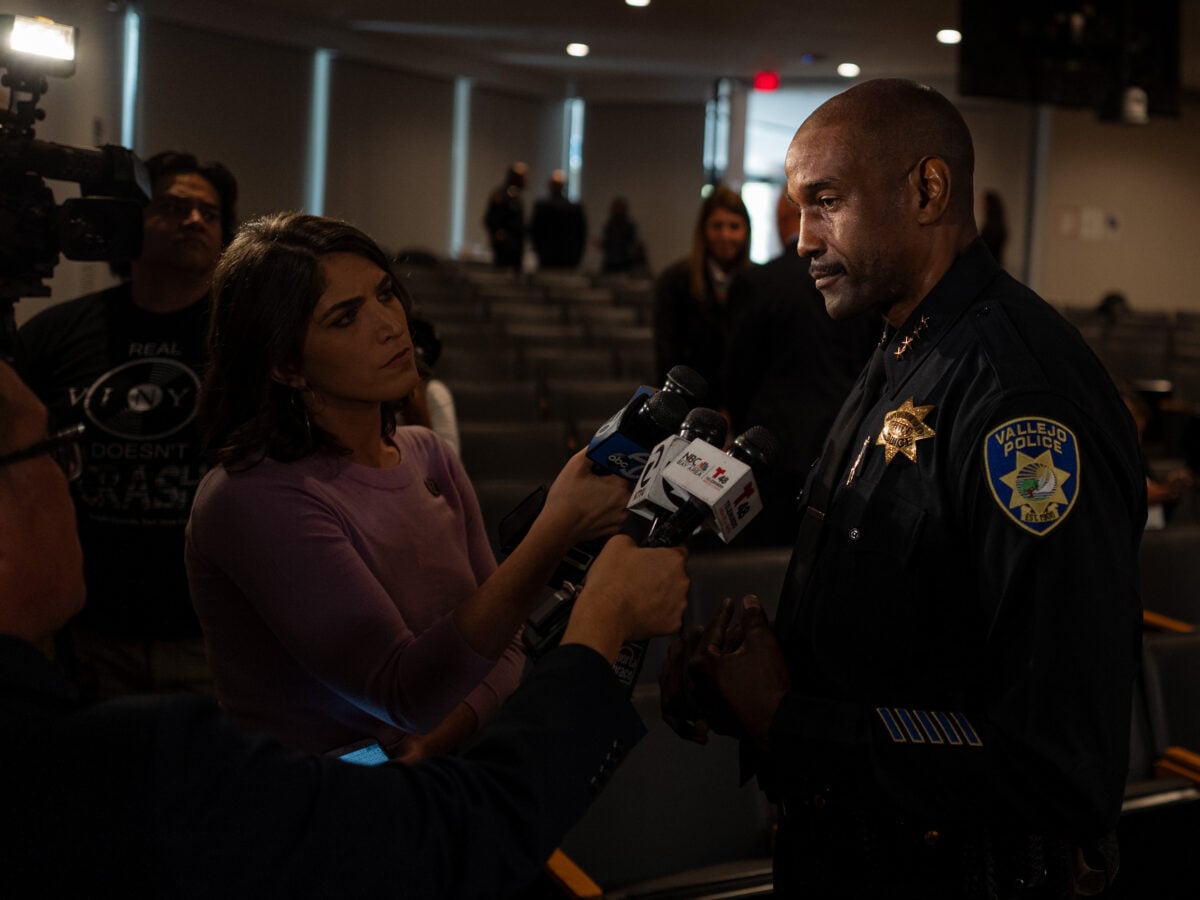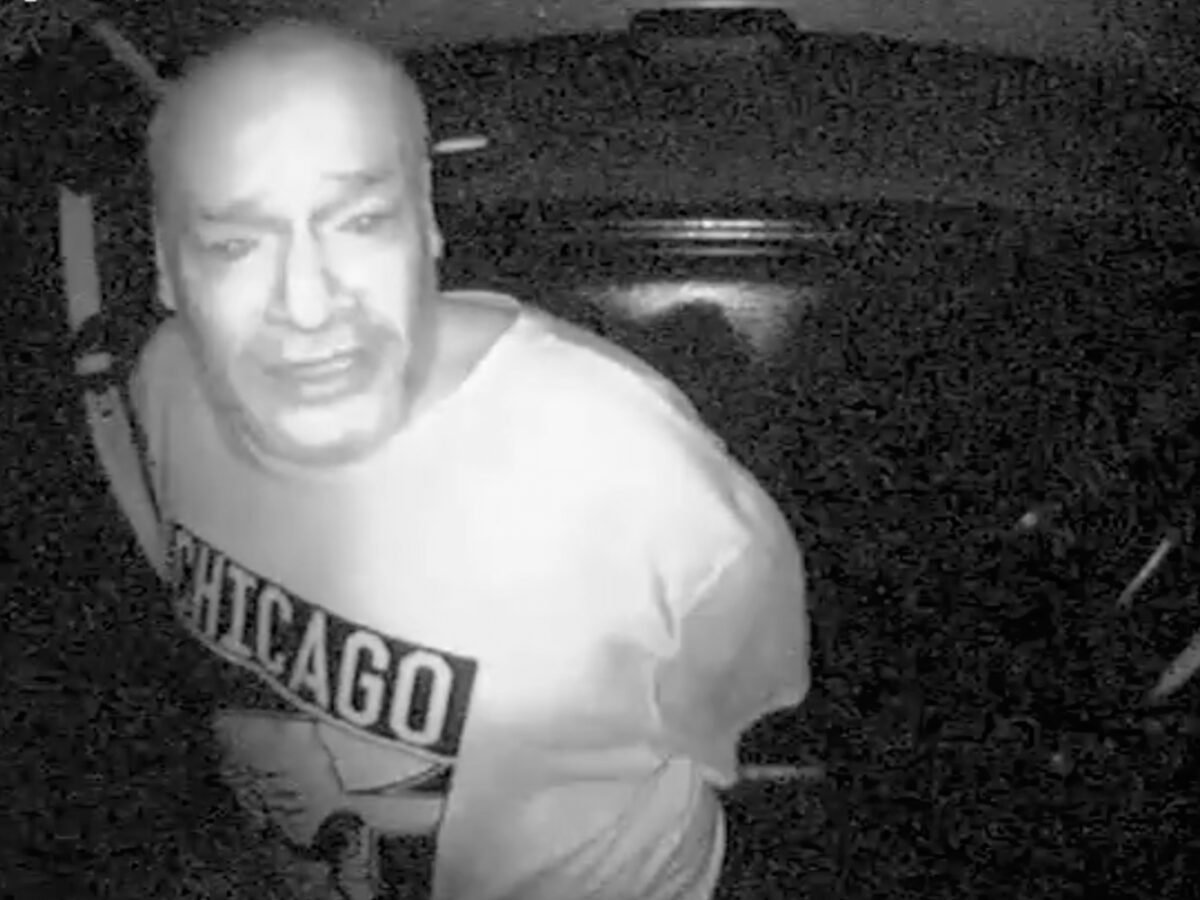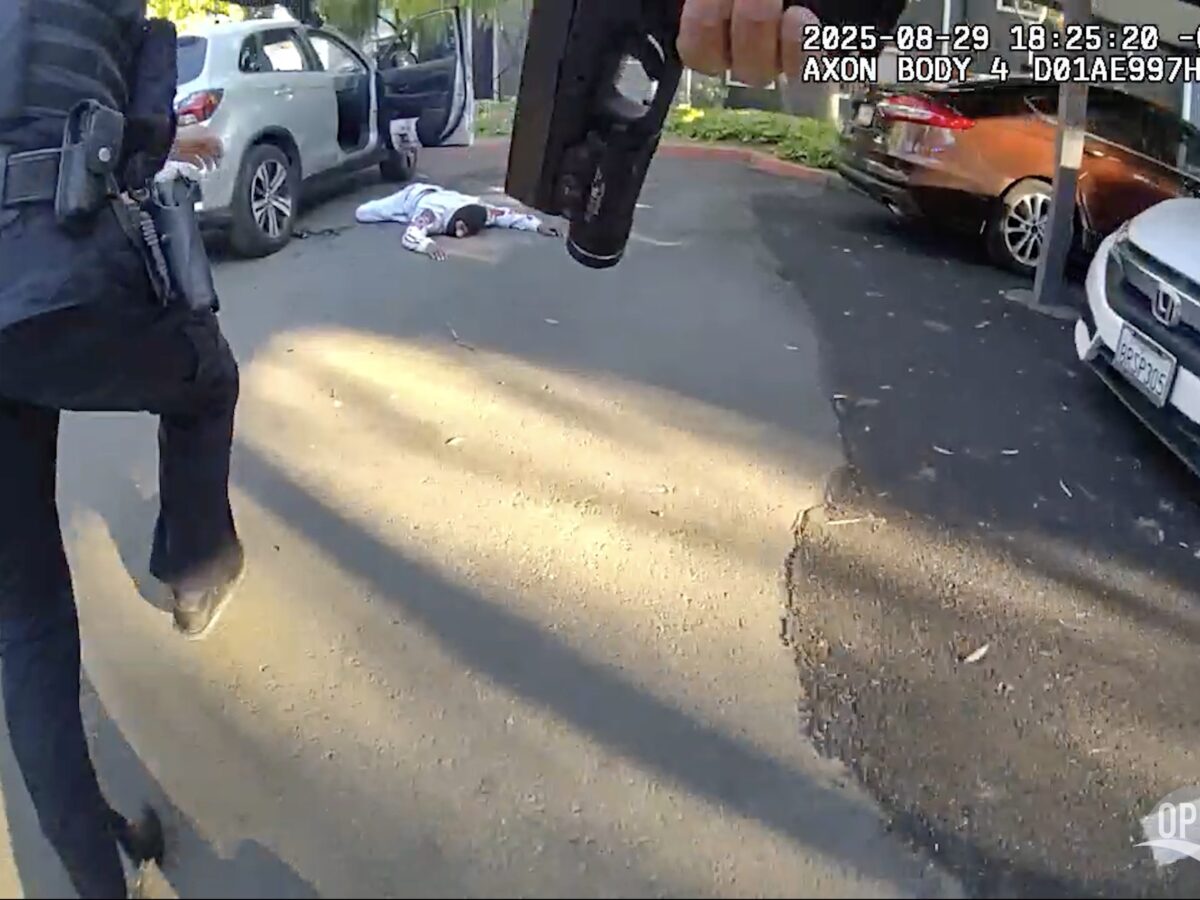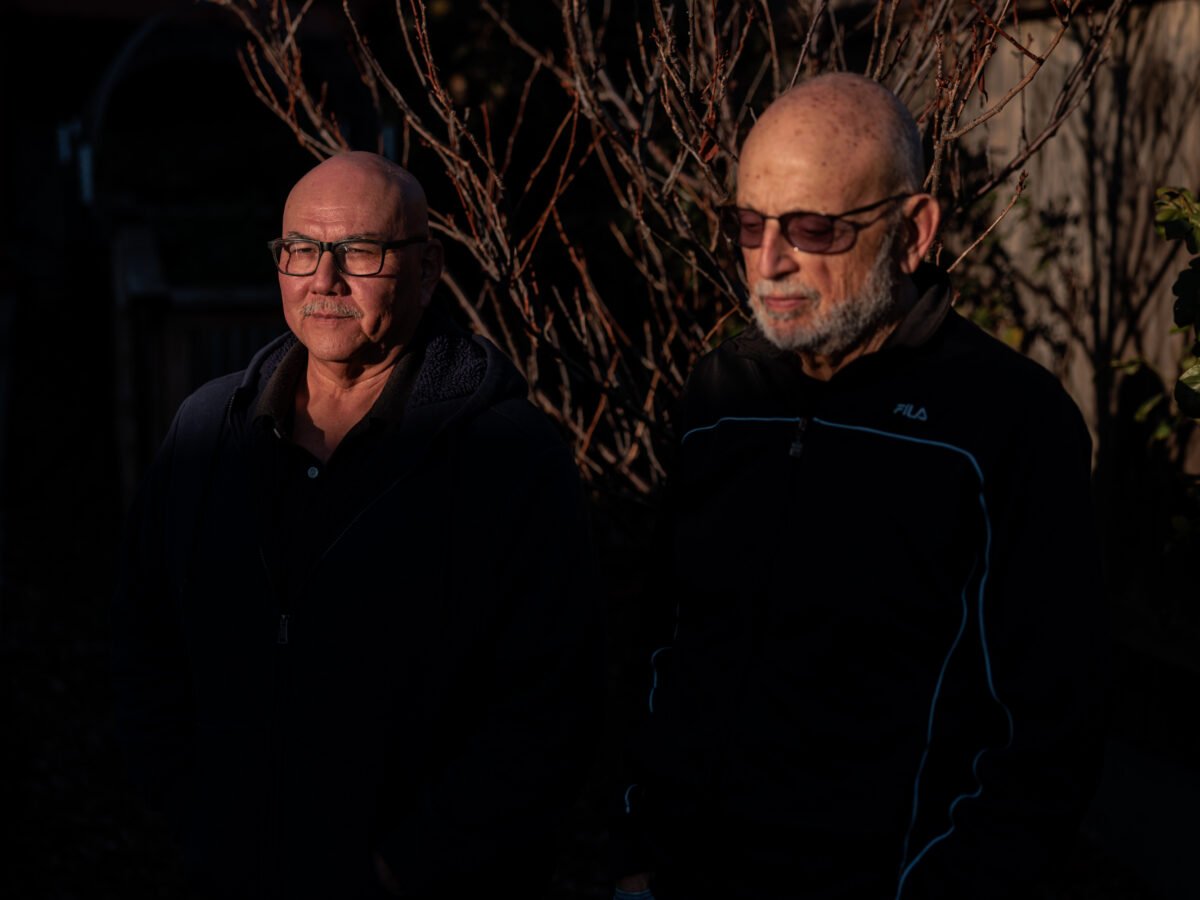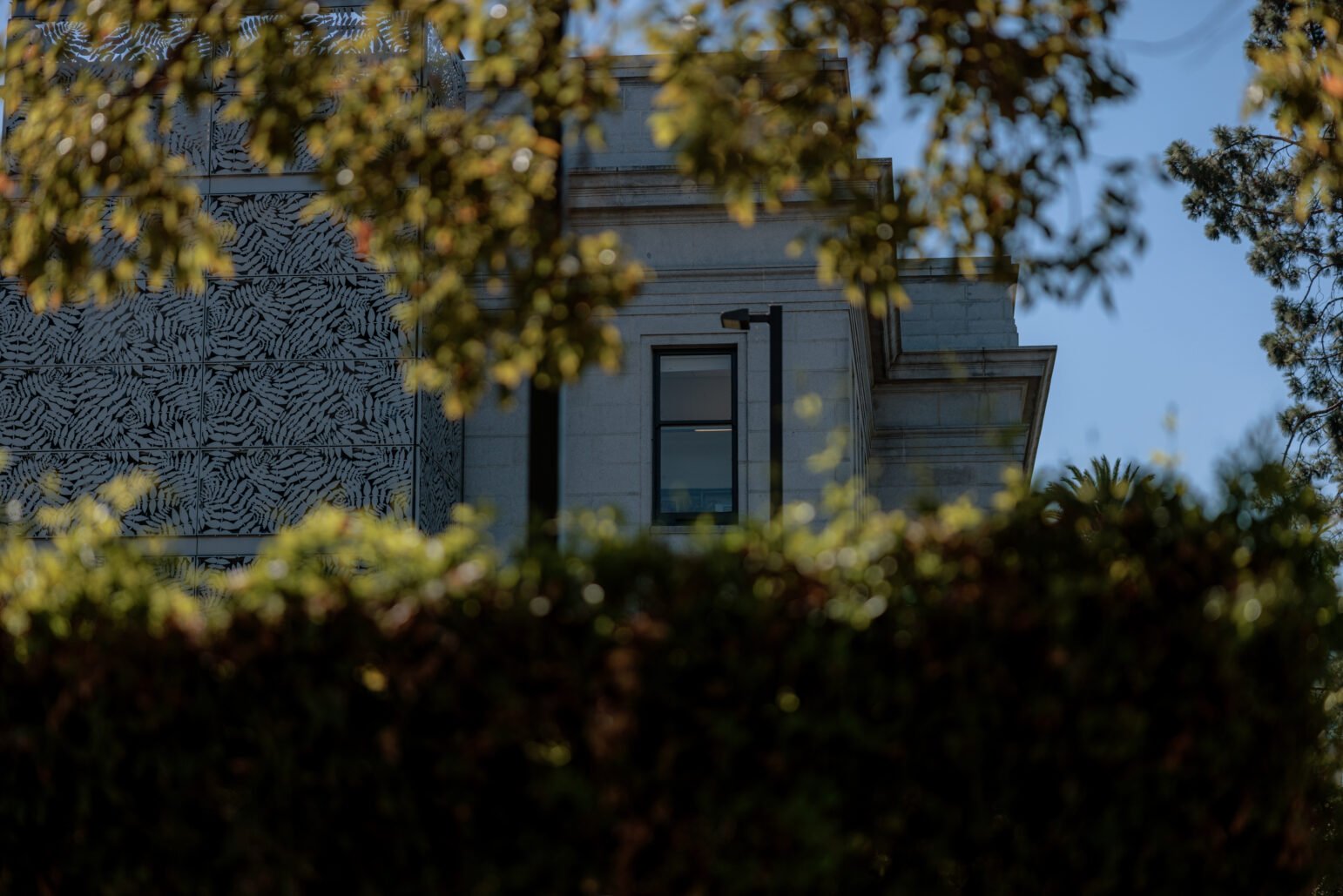
A Solano County Superior Court judge blocked the full release of an investigative report into Vallejo police badge bending Wednesday in a hearing closed to the public and press.
Judge Stephen Gizzi instead ordered the Vallejo Police Department to release 18 pages of the roughly 150-page badge bending report by next week, according to Avi Frey and Emi Young, attorneys with the American Civil Liberties Union of Northern California. The department also must disclose background communications and other records, but much of the documents related to badge bending among Vallejo officers are expected to remain concealed.
In January 2022, the ACLU filed a public records request seeking records related to a third-party investigation into allegations that some Vallejo officers bent the tips of their badges to commemorate police shootings, a ritual first revealed in 2020 by Open Vallejo. The civil liberties organization sued Vallejo later that year after the police department denied its request.
Wednesday’s decision resolves the case largely in favor of Vallejo police, although attorneys for the ACLU said they plan to appeal the ruling.
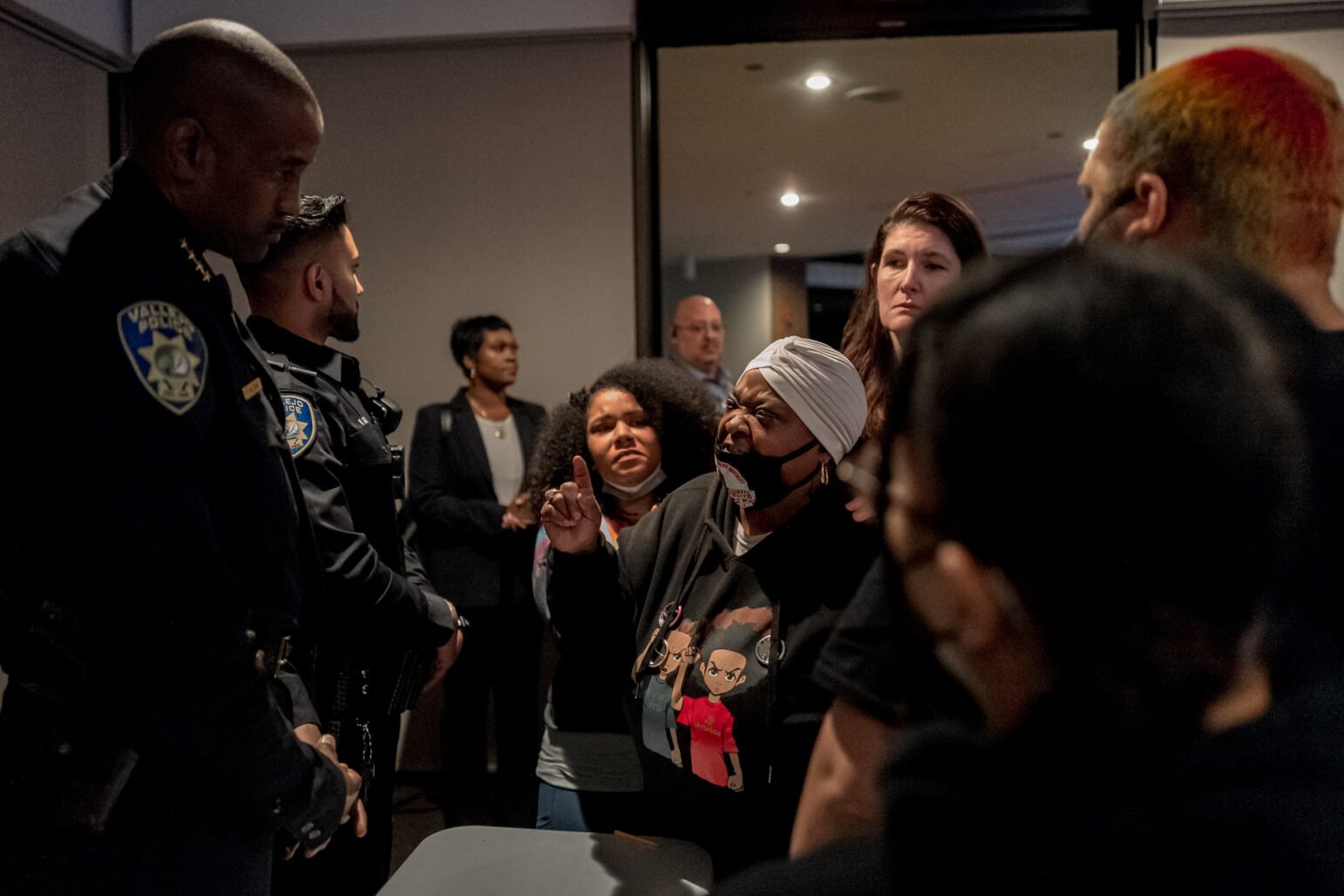
Judge Gizzi held Wednesday’s hearing behind closed doors despite objections from the ACLU and Open Vallejo. This newsroom indicated to the court its interest in the hearing weeks prior by filing a request to photograph the proceedings, which the judge initially granted before moving the hearing date.
Gizzi ordered the new hearing closed to the public and the press in a tentative ruling issued Tuesday afternoon. “This hearing involves documents and information subject to an existing protective order,” he wrote in the ruling, adding that a transcript of the hearing would also remain sealed. (Attorneys who attended the hearing said the judge will allow the transcript to be released in a week’s time).
Civil court proceedings are presumptively open to the public, under both state law and the First Amendment. Before closing a proceeding, courts must hold a public hearing to establish that there is an “overriding interest” in doing so, that the closure is narrowly tailored to serve that interest, and that there is “no less restrictive means of achieving the overriding interest,” according to a 1999 decision by the California Supreme Court.
Open Vallejo and the ACLU submitted separate motions on Tuesday night objecting to the proposed blanket confidentiality surrounding the hearing.
“These motions pertain to matters of substantial public interest and importance, namely the right of public access to information regarding badge bending misconduct by Vallejo Police Department officers — the very subject of the ACLU’s underlying Public Records Act request and the present litigation to enforce it,” the ACLU argued.
Open Vallejo is represented in this matter by the First Amendment Coalition, a nonprofit transparency organization. Through its attorneys David Snyder and David Loy, the newsroom noted that the California Supreme Court has established that “representatives of the press and general public must be given an opportunity to be heard on the question of their exclusion.”
On Wednesday morning, however, a court clerk asked Snyder to leave Courtroom Three in the Old Solano Courthouse in Fairfield ahead of the hearing. In addition to filing objections electronically, Snyder and attorneys for the ACLU provided paper copies to the court clerk ahead of the hearing. But a clerk told Snyder that the judge would not read them because they “haven’t actually been filed,” he said.
After Snyder left the courtroom, reporters in the hallway heard an audible click as someone locked the door behind him. The hearing then proceeded without any members of the public present — a clear violation of California law and the First Amendment, Snyder said.
“It is nothing short of outrageous that the public and the press weren’t even given the opportunity to make the case that the hearing should be open,” he said, adding that the judge “closed off all avenues for argument.”
‘Troubling and disturbing’
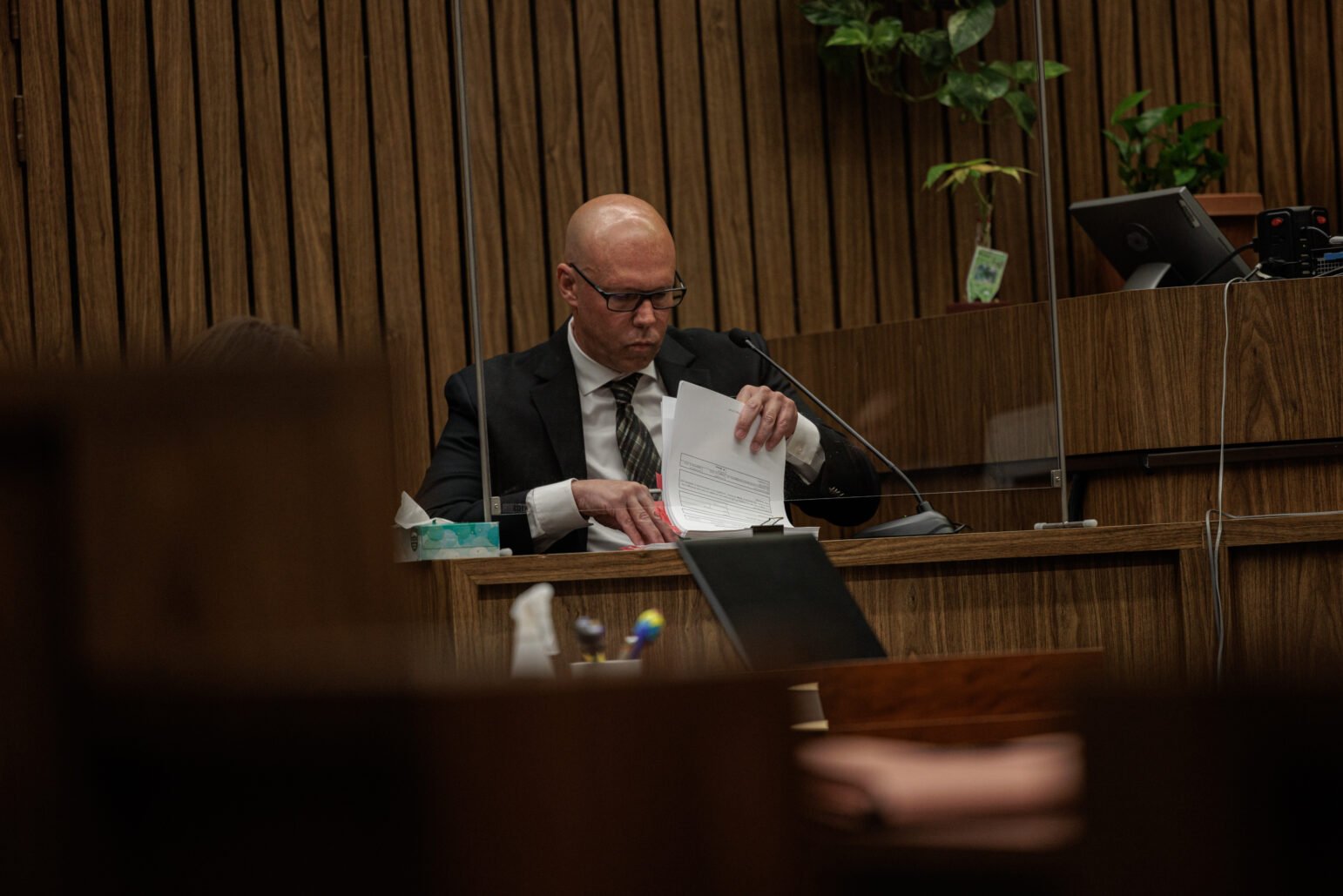
The Vallejo Police Department announced an independent investigation into allegations of badge bending three days after Open Vallejo revealed the practice, characterizing the allegations as “troubling and disturbing.” The city tapped former Sonoma County Sheriff Robert Giordano to lead the investigation. He produced a final investigative report roughly a year later, but his findings have never been made public, as the city has repeatedly blocked the report’s release.
Open Vallejo is separately suing the Solano County District Attorney’s Office for the badge bending report in a case that is also before Judge Gizzi.
In response to the ACLU’s public records request for the investigative report and all supplemental materials, Vallejo argued such records are peace officer personnel records and exempt from disclosure. The agency later argued the records were also confidential under attorney-client and deliberative process privileges, according to court records.
In court filings, the ACLU has argued that the records are public under Senate Bill 1421, a California law passed in 2018 to improve transparency around serious police misconduct. The law requires that agencies release records “relating to the report, investigation, or findings” of incidents involving the discharge of a firearm at a person or the use of force by a police officer that results in death or great bodily injury.
Since badge bending occurred as a way of commemorating police shootings, Giordano’s report is directly related to such incidents and “must be disclosed,” especially in a city where “there has been scant transparency and accountability,” the ACLU argued in its lawsuit.
“For the people of Vallejo to have any trust in their police force, they must know what the Department did about this — specifically, how the Giordano investigation was conducted, what it uncovered, and what action the Department took in response,” the ACLU wrote in a motion for judgment.
“Without that information, the community has no recourse but to presume that the Department tolerates the sort of predatory behavior that badge-bending connotes.”

